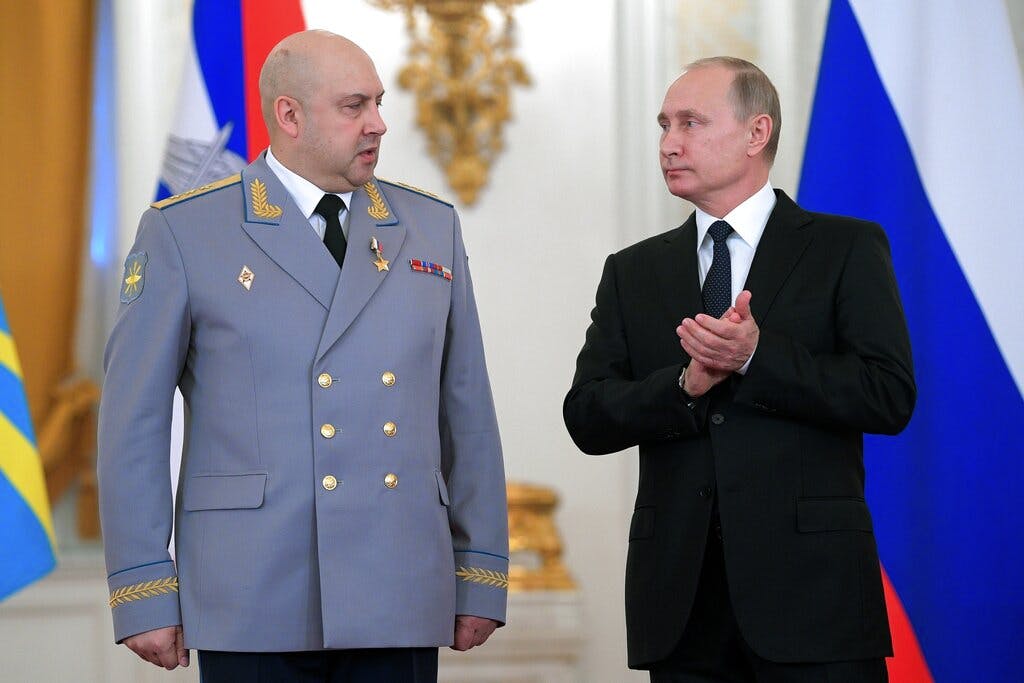Memo to Putin: Head of Russia’s Private Army Calls Zelensky a ‘Nice Guy’
The Wagner group’s founder, Yevgeny Prigozhin, appears to be flexing his muscle within the Kremlin.

Compliments sometimes come from the strangest of quarters, and in stark contradiction to the Kremlin’s official line, the head of the stealthy Wagner group — essentially Russia’s private army — has heaped praise on Ukraine’s president, Volodymr Zelensky. “Although he is the president of a country hostile to Russia at the moment, Zelensky is a strong, confident, pragmatic and nice guy,” the Wagner group’s founder, Yevgeny Prigozhin, said on a Russian social media platform, VK. In a follow-up post, Mr. Prigozhin added, “Don’t underestimate him.”
The kind words were all the more surprising because the Kremlin has vociferously belittled Mr. Zelensky since the outset of the Russian invasion of Ukraine last February, if not before. Moscow has gone so far as to falsely try to depict Mr. Zelensky, who is Jewish, as a neo-Nazi. Some elements of the Wagner group, meanwhile, have reportedly had links to neo-Nazi groups and ideology.
The 61-year-old Mr. Prigozhin, whose professional past includes organizing gala dinners for Vladimir Putin — earning him the moniker “Putin’s chef” — is considered to be one of Moscow’s key power brokers and is an ally of the Russian president. He also owns a successful catering business at St. Petersburg, Mr. Putin’s hometown.
Yet Mr. Prigozhin’s Wagner militia functions as the Kremlin’s shadow army and its members have led Russian offensives — to mixed success — against Ukrainian forces in various locations, but principally in the Donbas region, where fighting is ongoing.
In September, Mr. Prigozhin publicly admitted that he created the Wagner group in May 2014 as tensions were heating up between Ukrainian troops and Russian-backed separatists in the Luhansk and Donetsk regions trying to oust them. The exact number of Wagner group fighters is not known, but the BBC has reported that about 5,000 of its mercenaries operate worldwide and that at least a thousand have been assisting pro-Russian separatists in eastern Ukraine. Mr. Prigozhin has been sanctioned by both Washington and the European Union.
Because the Wagner group’s agenda is aligned with that of the Kremlin, the praise for Mr. Putin’s chief foe came as a surprise to many. Yet it is not the only surprise. Last month the Chechen leader (or warlord, as the case may be), Ramzan Kadyrov, who is also generally in lockstep with Mr. Putin and who oversees Chechen units fighting in Ukraine, admitted to high battlefield losses in the Kherson region. At first glance it might seem like these highly placed friends of Mr. Putin are leveling subtle criticism at the Russian strongman himself — but it is not necessarily so.
In a recent article titled “Kremlin Crack-up,” Britain’s Spectator magazine reported that “when Kadyrov, Prigozhin, and the other heavily armed patriotic critics attack the failed war effort, they are not so much challenging the status quo as jockeying for advantage within it. And they succeed in advancing up the chain of command to positions of greater influence.”
That assessment appears to be consistent with the manner in which Messrs. Prigozhin and Kadyrov have publicly criticized the performance of Russian generals in recent weeks. As for influence at the Kremlin’s highest echelons, it is pervasive.
The Guardian reported on Wednesday that a Russian dissident, Mikhail Khodorkovsky, has told a British parliamentary group that Mr. Prigozhin now has as much political influence in the Kremlin as the foreign minister, Sergei Lavrov, and the defense minister, Sergei Shoigu. Mr. Khodorkovsky claimed that not only was it Mr. Prigozhin who was responsible for the recent appointment of a hardline Russian commander, Sergey Surovikin, to oversee Moscow’s war in Ukraine, but that the two are working closely together in real time.
Mr. Prigozhin also said of Mr. Zelensky that “to become stronger, to win, you need to treat the opponent with respect. Always look for flaws in yourself, and see what’s good and important that can be learned from the experience of the enemy.”
Few Russians would dare to school Mr. Putin on how to treat an opponent, but by doing so the Wagner mastermind could simply be flexing muscle that few can deny he now has. The flip side of the veneration for Mr. Zelensky could be that it is a warning shot to the Kremlin over strategy: What Moscow thought would be a piece of cake is turning into very bitter medicine, the indulgence of which is not limitless.
Could growing impatience with all the jagged pills of a botched military adventure be feeding a power struggle at Moscow? The Spectator posited that the Kremlin has essentially become an extension of Russia’s Federal Security Service, the FSB, and that the security clique’s grip on the gears of power holds firm. Yet that doesn’t rule out the possibility that a shadow player like Mr. Prigozhin might at some point want to try his hand at the wheel.

